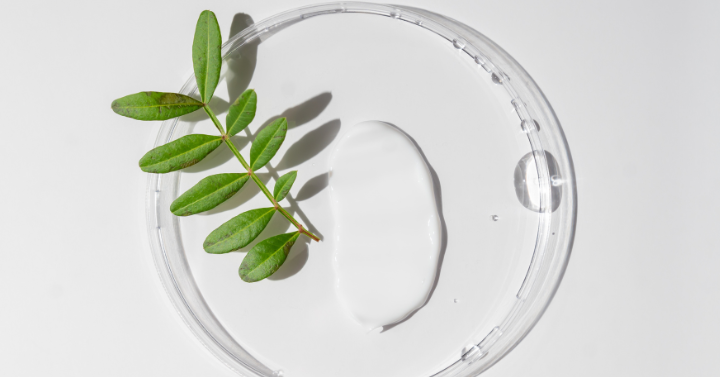Sustainability has emerged as a pivotal force within the personal care industry, driven by a combination of increasing consumer demand, tightening regulations, and advancements in technology. This shift toward environmental stewardship is significantly influencing market trends and the development of new products. As the preference for eco-friendly products grows among consumers, companies are increasingly motivated to integrate sustainable technologies and practices into their operations. Concurrently, the imposition of stricter regulations is steering the industry toward adopting greener processes and ingredients, thereby embedding sustainability at the core of the industry’s evolution.
Traceability of Raw Materials Will Increase the Move Toward Natural Ingredients
The importance of transparency and traceability of ingredients is becoming increasingly significant in the personal care sector. Notably, Europe is set to introduce legislation in 2025 that will require the traceability of natural raw materials, which is expected to impact the market for natural ingredients significantly. Traceability systems are designed to allow authorities to track the origin of ingredients, monitor product safety, and facilitate the recall process in cases of adverse reactions or non-compliance with regulatory standards. This upcoming regulation is anticipated to bolster consumer trust and contribute to the creation of a more sustainable marketplace within the region. However, a notable challenge associated with this regulation is the potential increase in costs as nature-based ingredients, which are already facing demand challenges due to their higher price points, and likely to become even more expensive.
EU’s Green Deal Focuses on Safer and Environment-Friendly Products
The European Green Deal represents a strategic initiative by the European Union aimed at achieving carbon neutrality by 2050. Within the personal care industry, this initiative promotes the use of sustainable and eco-friendly ingredients, aligning with the growing consumer demand for environmentally responsible products. Furthermore, it seeks to reduce the presence of harmful substances in product formulations. By encouraging innovation, the European Green Deal supports the development of safer products and ingredients that not only meet regulatory standards but also advance environmental sustainability. This initiative particularly favors the use of ingredients such as preservative boosters and biosurfactants.
Microplastics Ban Is Set to Evolve
In a significant regulatory development in 2023, the European Commission adopted the Regulation (EU) 2023/2055, which mandates the phased elimination of intentionally added microplastics in personal care products by 2035. This regulation begins with the removal of exfoliating microbeads and plastic loose glitter, extending to the phase out of microplastics from rinse-out products by 2027. The definition of ingredients classified under the microplastics ban is expected to evolve in the coming years in Europe, potentially leading to further market disruptions and necessitating shifts in demand.
How the ISO 16128 Guidelines Impact Sustainability
Amidst the personal care ingredients industry’s ongoing sustainability transformation, the ISO 16128 guidelines have emerged as a significant point of reference. Unlike traditional standards, ISO 16128 is neither a label nor a legal requirement but serves as a harmonizing force across the cosmetic markets of various regions. Its primary aim is to provide clear definitions and criteria for natural and organic cosmetics, thereby fostering a unified understanding across the globe.
ISO 16128 establishes a comprehensive framework for categorizing ingredients into the natural, derived-natural, derived-mineral, and non-natural categories. This classification system enables brands to accurately calculate and communicate the percentages of natural or organic origin in the finished products. The standard’s approach to defining naturality and organic origins is pivotal for brands striving to meet consumer demands for transparency and sustainability. By adhering to these guidelines, companies can navigate the complex terrain of global markets more effectively, ensuring that their products align with the evolving expectations of consumers and regulators alike.
Moreover, ISO 16128’s impact extends beyond mere compliance. It acts as a catalyst for innovation, encouraging the development of products that are not only environment-friendly but also aligned with the ethos of natural and organic beauty. As the personal care ingredients market continues to adapt to the changing regulatory landscape in the EU and beyond, the principles outlined in ISO 16128 will undoubtedly play a crucial role in shaping the future of sustainable personal care products.
A Balancing Act
The transition toward sustainability is accompanied by several challenges. The adoption of stricter regulatory standards necessitates substantial reformulation efforts, potentially limiting the options available to manufacturers. Moreover, the shift toward eco-friendly alternatives is often associated with increased production costs. Companies are, thus, faced with the task of balancing compliance, sustainability, and financial viability as they navigate the complexities of adhering to new regulations while maintaining competitive pricing and product quality.
Explore Kline’s Ingredient Tracker and learn how our cutting-edge tool has been designed to revolutionize how you identify and size raw material opportunities in the personal care industry.
Don’t miss out, now available as an on-demand webinar – Next-Gen Raw Material Opportunities Identification: Kline’s Ingredient Tracker Unveiled.

